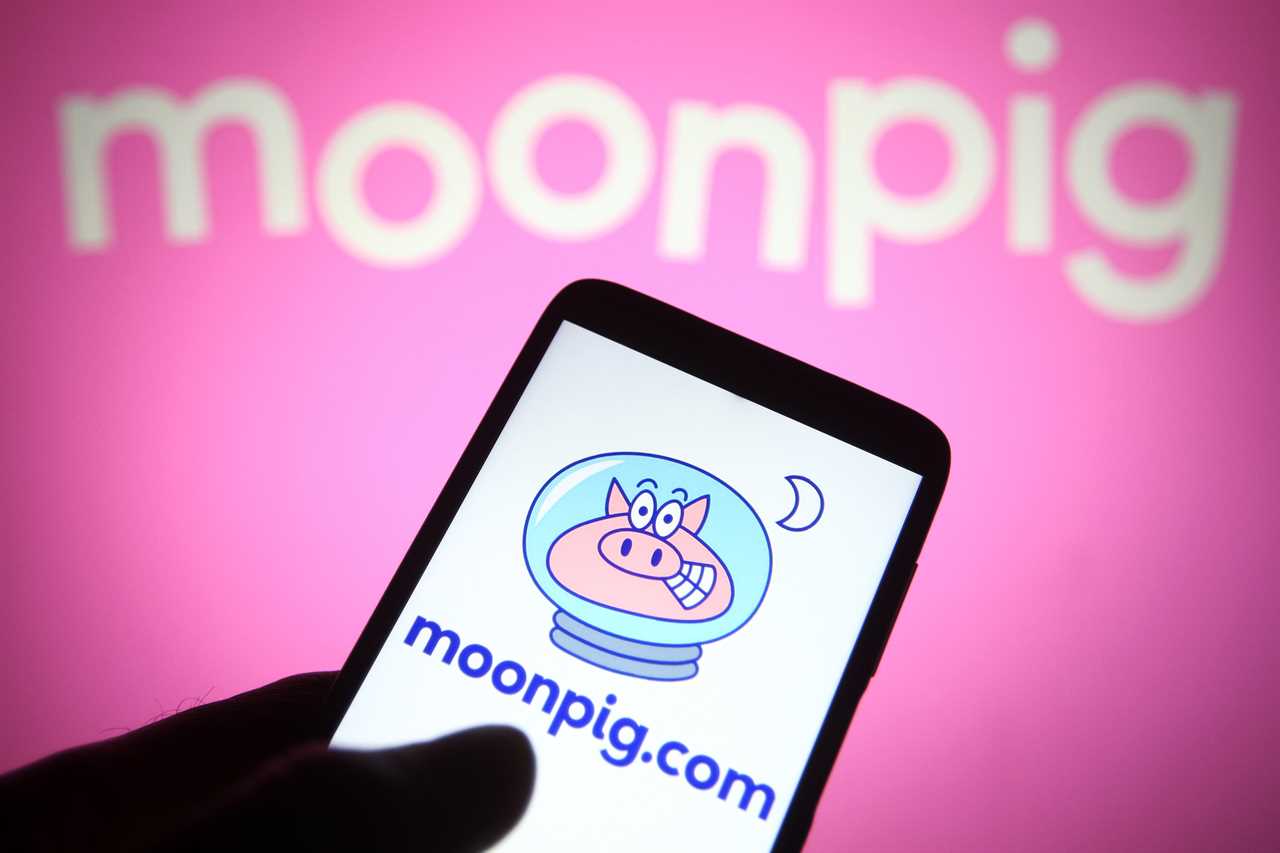
Holy crap, the timing couldn't be worse. Just when fast-fashion behemoth Shein thought they had London's stock market wrapped around their finger, Donald freaking Trump drops a tariff bomb that has investors running for the exits.
I was talking to my mate at one of the big banks last week (who bet me £30 I couldn't name all of Shein's competitors in under a minute - I lost spectacularly), and he was already nervous about the listing. Now? The whole thing feels like watching someone try to launch a paper boat in a hurricane.
The Worst-Kept Secret That's Now a Massive Headache
About a month back, Shein's boss Donald Tang finally admitted what literally everyone in the City already knew - they wanted a London stock market flotation. Valued at a mind-boggling £50 billion. The champagne was practically on ice.
But that was before.

Now the listing's wobbling like a drunk uncle at a wedding. Markets have gone absolutely mental, and investors are properly spooked about backing a business that's about to get hammered by Trump's new tariffs. The US is Shein's biggest cash cow - they raked in roughly £25bn in 2023 alone.
Trump Just Nuked Shein's Entire Business Model
On Wednesday, Trump killed the loophole that let Shein ship millions of tiny parcels from China to American doorsteps without paying import duties. It was like watching someone pull the tablecloth out from under Shein's entire dinner setting.
Starting May 2nd (that's next week!), these imports will get slapped with either 30% of their value or $25 per item. Jesus. For a company selling $8 crop tops, that's a death sentence.
Tang tried to brush it off last month with this absolute gem: "We're about customers. We're not about customs policy." Yeah, good luck with that approach now, mate.

Wait... It Gets Worse
As if that wasn't enough, Trump also piled on an additional 34% of "reciprocal" tariffs on top of the existing 20% duties for Chinese imports. Do teh math - that's a 54% tax on goods from China.
I spent 3 hours yesterday looking through Shein's product listings. They sell dresses for under $10! How the hell do they make that work with a 54% tariff?
One source (who texted me at 11pm last night after clearly having a few) said any listing would now depend on "market conditions" - corporate speak for "we're absolutely bricking it."
Rivals Are Probably Popping Champagne
Let's be real. Other retailers have been bitching for years that Shein had an unfair advantage by dodging the same import taxes they had to pay.

Zaki Farooq from Payfuture pointed out that Shein and their rival Temu send about 600,000 parcels DAILY to the US under this scheme. That's insane.
I spoke to an exec at a major US clothing retailer last week (who shall remain nameless because he was surprisingly candid after our third coffee). His response when I mentioned Shein's potential troubles: "About damn time. We've been playing on an uneven field for years."
Investors Getting Cold Feet
Word on the street is that investors were already pressing Shein to slash their valuation before all this tariff drama. Now? I'd be shocked if they don't demand a massive discount.
Shein declined to comment when I reached out. Can't blame them - what could they possibly say that wouldn't tank their stock before it even launches?

Meanwhile, in Valentine's Land...
In completely unrelated news (because that's how newspapers roll), Moonpig claims one in three Valentine's Day cards this year were created using their AI tools. Apparently, their "personal writing assistant" is helping people express their deepest feelings.
God. Is nothing sacred anymore?
Their CEO, Nickyl Raithatha, spouted some corporate nonsense about "using technology, data and AI" to help customers "connect with loved ones." Sure, mate. Nothing says "I love you" like having a computer write your Valentine's message.
Still, their shares jumped 3% and they announced a £60m buyback, so someone's buying this BS.
Currys Shocks Everyone By Not Being Dead
Against all odds, Currys is... doing well? The electrical retailer boosted profit guidance for the second time in a year as people apparently remembered they exist.
Their boss Alex Baldock claims AI features in new iPhones and laptops are making people ditch their old devices. I bought a new laptop in 2018 and swore I'd keep it for at least 7 years. It's still going... mostly.
Currys now expects adjusted pre-tax profits around £160m, up from £155m. Their shares jumped 14% yesterday to 101.45p, which must feel like sweet vindication after they told activist investor Elliot to piss off last year when they tried a takeover.
Doctor Doctor, Give Me Some Property
NHS landlord Primary Health Properties has gone rogue with a surprise £1.5bn bid for rival Assura, who had already agreed to a £1.6bn deal with KKR.
Poor KKR. Imagine thinking you've sealed a deal only to have someone else crash your party.
Primary owns 516 surgeries and medical centres, while Assura has over 600 healthcare properties. If they merged, they'd basically own half the doctors' offices in Britain.
Assura said they're "considering" the deal to "maximise value for shareholders." Translation: "Show us the money."
Co-op Warns Your Groceries Are About to Get Even More Expensive
The Co-op's boss Shirine Khoury-Haq has warned food prices are "going the wrong way" thanks to the Budget's extra costs. Because of course they are.
They're facing a £50m hit from National Insurance changes and another £30m from a new packaging levy. But apparently they've spent three years trimming staff and "adjusting" (whatever that means), so they'll survive.
Their profits jumped from £28m to £161m. Not bad for a company warning about how tough things are.
Khoury-Haq said she asked ministers to stagger the costs, warning: "There will be an adverse impact on the high street and communities." I mean... no shit?
Amazon Wants a Piece of TikTok
In a last-minute plot twist, Amazon has thrown its hat into the ring to buy TikTok's US operations.
Jeff Bezos apparently delivered his bid directly to VP JD Vance just before Trump went all tariff-crazy. Because Bezos clearly doesn't have enough power already.
TikTok has until tomorrow to ditch its Chinese ownership or face a US ban. Oracle's Larry Ellison was the frontrunner, but now Amazon wants in.
I'm just waiting for Elon to tweet something ridiculous about this. Give it 24 hours.
Frequently Asked Questions
How can I start saving for retirement?
To start saving for retirement, begin by establishing clear retirement goals and determining how much you need to save. Contribute to employer-sponsored retirement plans, such as a 401(k), and consider opening an Individual Retirement Account (IRA). Regular contributions and taking advantage of compounding interest can significantly boost your retirement savings over time.
What are credit scores and why are they important?
Credit scores are numerical representations of an individual's creditworthiness, calculated based on credit history, payment behavior, and debt levels. They are important because they impact the ability to obtain loans, credit cards, and favorable interest rates, affecting overall financial health.
What are the main functions of money?
The primary functions of money are as a medium of exchange, facilitating trade; a unit of account, which provides a standard measure of value; a store of value, allowing individuals to save and transfer purchasing power over time; and a standard of deferred payment, enabling credit transactions.
What is a budget deficit?
A budget deficit occurs when a government's expenditures exceed its revenues over a specific period, usually a fiscal year. This can lead to increased borrowing and national debt if not addressed through spending cuts or revenue increases.
What are the risks associated with investing in the stock market?
Investing in the stock market involves several risks, including market volatility, economic downturns, and company-specific factors that can lead to losses. Investors may also face liquidity risk, where they cannot sell an investment quickly without incurring a loss. Diversification and thorough research can help mitigate these risks.
How can I budget my money effectively?
To budget effectively, start by tracking your income and expenses to understand your spending habits. Set realistic financial goals, categorize your expenses, and allocate funds accordingly. Regularly review and adjust your budget to ensure it reflects your current financial situation and objectives.
What is the definition of money?
Money is a medium of exchange that facilitates transactions for goods and services. It serves as a unit of account, a store of value, and a standard of deferred payment, allowing individuals to compare the value of diverse products and services.
Statistics
- As of 2021, the average student loan debt for recent graduates was approximately $30,000, according to the Federal Reserve.
- A survey by the American Psychological Association found that 72% of Americans reported feeling stressed about money at some point in the past month.
- A report by Bankrate indicated that only 29% of Americans have a written financial plan.
- In 2020, the average retirement savings for Americans aged 60 to 69 was approximately $195,000, according to Fidelity.
- According to the World Bank, around 1.7 billion adults worldwide remain unbanked, lacking access to basic financial services.
- According to the Federal Reserve, approximately 39% of Americans do not have enough savings to cover a $400 emergency expense.
- The average cost of raising a child in the U.S. is estimated to be around $233,610, according to the U.S. Department of Agriculture.
- According to a survey by the Financial Industry Regulatory Authority (FINRA), about 66% of Americans could not correctly answer four basic financial literacy questions.
External Links
How To
How To Improve Your Credit Score
Improving your credit score is a gradual process that requires consistent effort. Start by obtaining a copy of your credit report from the major credit bureaus to identify any inaccuracies or negative entries. Pay your bills on time, as payment history accounts for a significant portion of your credit score. Reduce your credit card balances to maintain a low credit utilization ratio, ideally below 30%. Avoid opening new credit accounts frequently, as this can negatively impact your score. Lastly, consider becoming an authorized user on a responsible person's credit card to benefit from their good credit habits. Regularly monitor your credit report to track your progress.
Did you miss our previous article...
https://hellofaread.com/money/the-last-days-of-risboroughs-rspca-shop-another-charity-casualty
 PoliticsRoyaltySoap OperaGamingMoneyPrivacy PolicyTerms And Conditions
PoliticsRoyaltySoap OperaGamingMoneyPrivacy PolicyTerms And Conditions
